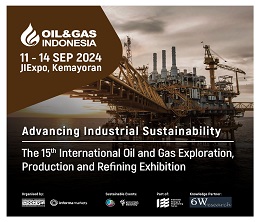Georgia Corrosion Inhibitors Market (2024-2030) Outlook | Revenue, Growth, Forecast, Analysis, Value, Companies, Industry, Share, Size, Trends
| Product Code: ETC130590 | Publication Date: Jun 2021 | Updated Date: May 2024 | Product Type: Report | |
| Publisher: 6Wresearch | No. of Pages: 70 | No. of Figures: 35 | No. of Tables: 5 | |
Georgia Corrosion Inhibitors Market Competition 2023
Georgia Corrosion Inhibitors market currently, in 2023, has witnessed an HHI of 3404, Which has increased slightly as compared to the HHI of 2175 in 2017. The market is moving towards concentrated. Herfindahl index measures the competitiveness of exporting countries. The range lies from 0 to 10000, where a lower index number represents a larger number of players or exporting countries in the market while a large index number means fewer numbers of players or countries exporting in the market.
Georgia Export Potential Assessment For Corrosion Inhibitors Market (Values in USD Thousand)
Georgia Corrosion Inhibitors Market Overview
Corrosion inhibitors are chemicals used to protect metal surfaces from corrosion in various industries, including oil and gas, manufacturing, and infrastructure. In Georgia, the corrosion inhibitors market is driven by the need to prolong the lifespan of critical infrastructure such as pipelines, bridges, and industrial equipment. Industries in Georgia invest in corrosion inhibitors to reduce maintenance costs and ensure the reliability of their assets.
Drivers of the market
As industries in Georgia continue to evolve and expand, the demand for corrosion inhibitors remains steadfast. These chemicals play a crucial role in protecting infrastructure, equipment, and assets from corrosion-related damage, thereby extending their lifespan and reducing maintenance costs. The market`s growth is propelled by ongoing industrial activities and infrastructure development projects across various sectors.
Challenges of the market
The Georgia corrosion inhibitors market confronts challenges related to environmental regulations and increasing scrutiny of chemical substances used in industrial applications. Regulatory bodies may impose restrictions or phase-outs of certain corrosion inhibitors deemed hazardous or environmentally harmful, requiring market players to invest in research and development of safer alternatives. Additionally, variability in corrosion rates across different industries and applications necessitates tailored solutions, posing a challenge for vendors to meet diverse customer requirements effectively. To overcome these challenges, market players must invest in sustainable product development, regulatory compliance, and customer engagement to build trust and credibility in the market.
Government Policy of the market
Government policies in Georgia can significantly impact the corrosion inhibitors market, particularly in industries such as oil and gas, manufacturing, and infrastructure development. Regulations related to environmental protection, workplace safety, and product standards may affect the use and distribution of corrosion inhibitors within the state. Additionally, policies aimed at promoting sustainable practices and reducing the environmental impact of industrial processes can drive demand for eco-friendly corrosion inhibitors in Georgia.
Key Highlights of the Report:
- Georgia Corrosion Inhibitors Market Outlook
- Market Size of Georgia Corrosion Inhibitors Market, 2020
- Forecast of Georgia Corrosion Inhibitors Market, 2030
- Historical Data and Forecast of Georgia Corrosion Inhibitors Revenues & Volume for the Period 2020 - 2030
- Georgia Corrosion Inhibitors Market Trend Evolution
- Georgia Corrosion Inhibitors Market Drivers and Challenges
- Georgia Corrosion Inhibitors Price Trends
- Georgia Corrosion Inhibitors Porter's Five Forces
- Georgia Corrosion Inhibitors Industry Life Cycle
- Historical Data and Forecast of Georgia Corrosion Inhibitors Market Revenues & Volume By Product for the Period 2020 - 2030
- Historical Data and Forecast of Georgia Corrosion Inhibitors Market Revenues & Volume By Organic for the Period 2020 - 2030
- Historical Data and Forecast of Georgia Corrosion Inhibitors Market Revenues & Volume By Inorganic for the Period 2020 - 2030
- Historical Data and Forecast of Georgia Corrosion Inhibitors Market Revenues & Volume By Type for the Period 2020 - 2030
- Historical Data and Forecast of Georgia Corrosion Inhibitors Market Revenues & Volume By Water Based for the Period 2020 - 2030
- Historical Data and Forecast of Georgia Corrosion Inhibitors Market Revenues & Volume By Oil Based for the Period 2020 - 2030
- Historical Data and Forecast of Georgia Corrosion Inhibitors Market Revenues & Volume By End-use for the Period 2020 - 2030
- Historical Data and Forecast of Georgia Corrosion Inhibitors Market Revenues & Volume By Power Generation for the Period 2020 - 2030
- Historical Data and Forecast of Georgia Corrosion Inhibitors Market Revenues & Volume By Oil & Gas for the Period 2020 - 2030
- Historical Data and Forecast of Georgia Corrosion Inhibitors Market Revenues & Volume By Paper & Pulp for the Period 2020 - 2030
- Historical Data and Forecast of Georgia Corrosion Inhibitors Market Revenues & Volume By Metal Processing for the Period 2020 - 2030
- Historical Data and Forecast of Georgia Corrosion Inhibitors Market Revenues & Volume By Chemical Processing for the Period 2020 - 2030
- Historical Data and Forecast of Georgia Corrosion Inhibitors Market Revenues & Volume By Water Treatment for the Period 2020 - 2030
- Historical Data and Forecast of Georgia Corrosion Inhibitors Market Revenues & Volume By Others for the Period 2020 - 2030
- Georgia Corrosion Inhibitors Import Export Trade Statistics
- Market Opportunity Assessment By Product
- Market Opportunity Assessment By Type
- Market Opportunity Assessment By End-use
- Georgia Corrosion Inhibitors Top Companies Market Share
- Georgia Corrosion Inhibitors Competitive Benchmarking By Technical and Operational Parameters
- Georgia Corrosion Inhibitors Company Profiles
- Georgia Corrosion Inhibitors Key Strategic Recommendations
Frequently Asked Questions About the Market Study (FAQs):
Georgia Corrosion Inhibitors |
1 Executive Summary |
2 Introduction |
2.1 Key Highlights of the Report |
2.2 Report Description |
2.3 Market Scope & Segmentation |
2.4 Research Methodology |
2.5 Assumptions |
3 Georgia Corrosion Inhibitors Market Overview |
3.1 Georgia Country Macro Economic Indicators |
3.2 Georgia Corrosion Inhibitors Market Revenues & Volume, 2020 & 2030F |
3.3 Georgia Corrosion Inhibitors Market - Industry Life Cycle |
3.4 Georgia Corrosion Inhibitors Market - Porter's Five Forces |
3.5 Georgia Corrosion Inhibitors Market Revenues & Volume Share, By Form, 2020 & 2030F |
3.6 Georgia Corrosion Inhibitors Market Revenues & Volume Share, By Type, 2020 & 2030F |
3.7 Georgia Corrosion Inhibitors Market Revenues & Volume Share, By End-use, 2020 & 2030F |
4 Georgia Corrosion Inhibitors Market Dynamics |
4.1 Impact Analysis |
4.2 Market Drivers |
4.3 Market Restraints |
5 Georgia Corrosion Inhibitors Market Trends |
6 Georgia Corrosion Inhibitors Market, By Types |
6.1 Georgia Corrosion Inhibitors Market, By Product |
6.1.1 Overview and Analysis |
6.1.2 Georgia Corrosion Inhibitors Market Revenues & Volume, By Product, 2018 - 2027F |
6.1.3 Georgia Corrosion Inhibitors Market Revenues & Volume, By Organic, 2018 - 2027F |
6.1.4 Georgia Corrosion Inhibitors Market Revenues & Volume, By Inorganic, 2018 - 2027F |
6.2 Georgia Corrosion Inhibitors Market, By Type |
6.2.1 Overview and Analysis |
6.2.2 Georgia Corrosion Inhibitors Market Revenues & Volume, By Water Based, 2018 - 2027F |
6.2.3 Georgia Corrosion Inhibitors Market Revenues & Volume, By Oil Based, 2018 - 2027F |
6.3 Georgia Corrosion Inhibitors Market, By End-use |
6.3.1 Overview and Analysis |
6.3.2 Georgia Corrosion Inhibitors Market Revenues & Volume, By Power Generation, 2018 - 2027F |
6.3.3 Georgia Corrosion Inhibitors Market Revenues & Volume, By Oil & Gas, 2018 - 2027F |
6.3.4 Georgia Corrosion Inhibitors Market Revenues & Volume, By Paper & Pulp, 2018 - 2027F |
6.3.5 Georgia Corrosion Inhibitors Market Revenues & Volume, By Metal Processing, 2018 - 2027F |
6.3.6 Georgia Corrosion Inhibitors Market Revenues & Volume, By Chemical Processing, 2018 - 2027F |
6.3.7 Georgia Corrosion Inhibitors Market Revenues & Volume, By Water Treatment, 2018 - 2027F |
7 Georgia Corrosion Inhibitors Market Import-Export Trade Statistics |
7.1 Georgia Corrosion Inhibitors Market Export to Major Countries |
7.2 Georgia Corrosion Inhibitors Market Imports from Major Countries |
8 Georgia Corrosion Inhibitors Market Key Performance Indicators |
9 Georgia Corrosion Inhibitors Market - Opportunity Assessment |
9.1 Georgia Corrosion Inhibitors Market Opportunity Assessment, By Product, 2020 & 2030F |
9.2 Georgia Corrosion Inhibitors Market Opportunity Assessment, By Type, 2020 & 2030F |
9.3 Georgia Corrosion Inhibitors Market Opportunity Assessment, By End-use, 2020 & 2030F |
10 Georgia Corrosion Inhibitors Market - Competitive Landscape |
10.1 Georgia Corrosion Inhibitors Market Revenue Share, By Companies, 2020 |
10.2 Georgia Corrosion Inhibitors Market Competitive Benchmarking, By Operating and Technical Parameters |
11 Company Profiles |
12 Recommendations |
13 Disclaimer |
- Single User License$ 1,995
- Department License$ 2,400
- Site License$ 3,120
- Global License$ 3,795
Search
Related Reports
- India Video Surveillance Market (2024-2030) | Size, industry, Share, Trends, Revenue, Analysis, Forecast, Growth, Value, Outlook
- India Air Conditioner (AC) Market (2024-2030) | Share, Size, Growth, Industry, Segmentation, Trends, Value, Revenue, Analysis & Outlook
- Poland Printing Market (2024-2030) | Trends, Companies, Share, Industry, Value, Growth, Analysis, Outlook, Forecast, Size & Revenue
- Argentina Data storage devices Market (2024-2030) | Size, Share, Industry, Trends, Growth, Value, Revenue, Analysis & Outlook
- UAE Cyber Security Market (2024-2030) | industry, Size, Share, Revenue, Analysis, Forecast, Growth, Trends & Outlook
- Professional Headset Market (2024-2030) | Companies, Outlook, Trends, Value, Forecast, Size, Analysis, Share, Growth, Revenue & Industry
- Polyurethane Market (2024-2030) | Trends, Companies, Analysis, Size, Share, Industry, Revenue, Outlook, Forecast, Value & Growth
- Orphan Drugs Market (2024-2030) | Outlook, Revenue, Value, Companies, Analysis, Size, Share, Forecast, Industry, Growth & Trends
- Military Robotic and Autonomous (RAS) Systems Market (2024-2030) | Outlook, Size, Forecast, Value, Trends, Growth, Industry, Analysis, Revenue, Share & Companies
- Infectious Disease Point-of-Care Testing Market (2024-2030) | Share, Revenue, Growth, Forecast, Analysis, Trends, Value, Companies, Industry, Outlook, Size
Industry Events and Analyst Meet
Our Clients
Whitepaper
- Middle East & Africa Commercial Security Market Click here to view more.
- Middle East & Africa Fire Safety Systems & Equipment Market Click here to view more.
- GCC Drone Market Click here to view more.
- Middle East Lighting Fixture Market Click here to view more.
- GCC Physical & Perimeter Security Market Click here to view more.
6WResearch In News
- India's Printer Market Faces 20.7% Decline in Q4 2023: Epson and HP Lead Amidst Downturn
- India's Camera Market Sees 8.9% Decline in Q4 2023; Canon Leads with 38.4% Share
- Doha a strategic location for EV manufacturing hub: IPA Qatar
- Demand for luxury TVs surging in the GCC, says Samsung
- Empowering Growth: The Thriving Journey of Bangladesh’s Cable Industry
- The future of gaming industry in the Philippines













